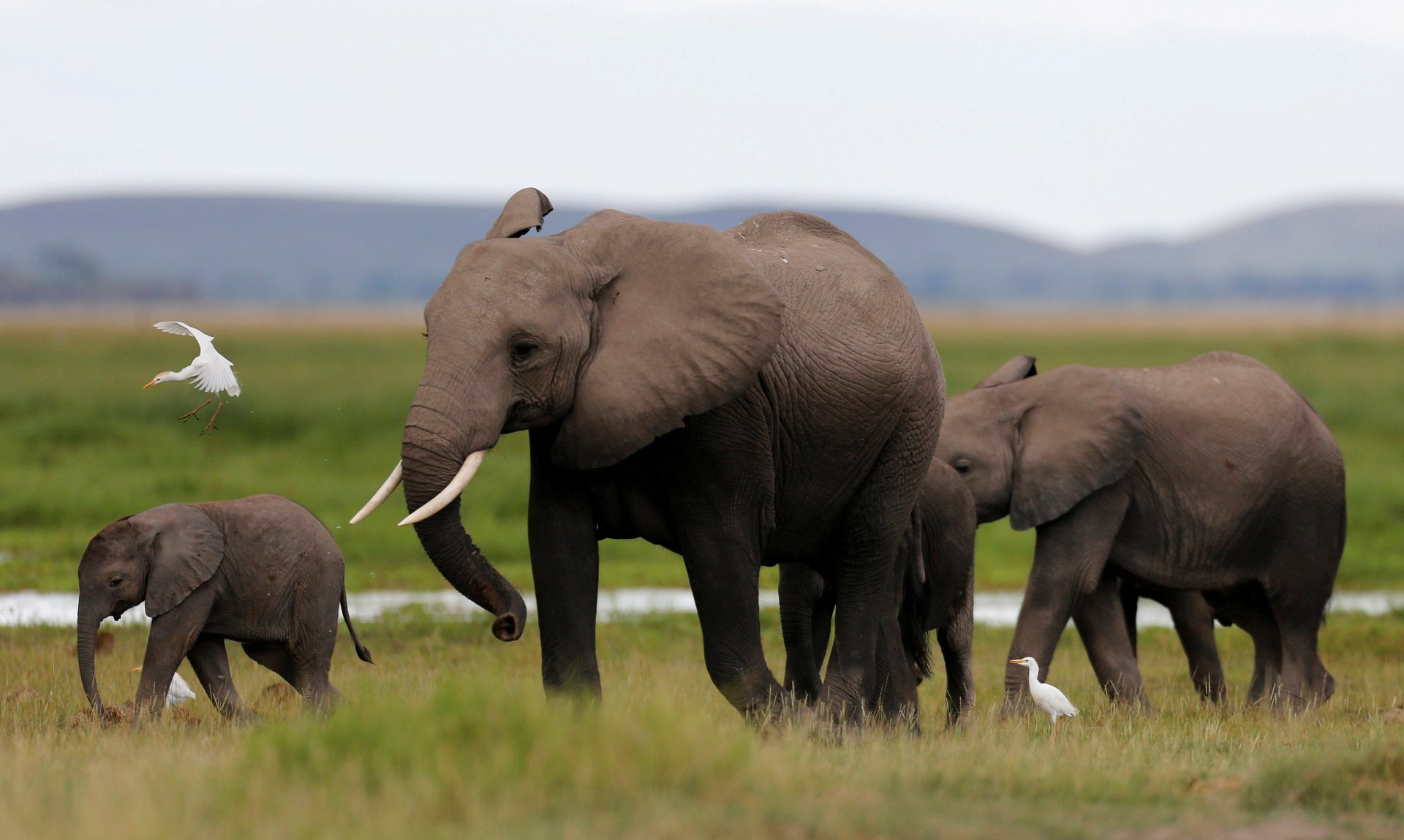Researchers tracking African elephants say they have figured out how to outsmart poachers
Roaming and well-organized poachers have hit Kenya hard in recent years, forcing conservationists to seek novel ways to retaliate. Some elephants are also fighting back using a remarkable defensive strategy. They’ve taught themselves how to stay within the boundaries of their reserve.


Roaming and well-organized poachers have hit Kenya hard in recent years, forcing conservationists to seek novel ways to retaliate. Some elephants are also fighting back using a remarkable defensive strategy. They’ve taught themselves how to stay within the boundaries of their reserve.
That’s what Frank Pope, operations manager of Save the Elephants, told attendees of last weekend’s Convention on International Trade in Endangered Species of Wild Fauna and Flora (CITES), in Nairobi, Kenya. Radio tracking data collected from elephants over the past 18 years show how the animals are “exquisitely sensitive to risk,” he said.
In Kenya’s Shaba National Reserve, there is no sign or fence to mark the park’s protected area. Nevertheless, its resident elephants seem to have figured out where the reserve ends and the wild begins. “You can almost pick out the borders of the reserve by where the elephants go,” Pope said, adding that the elephants seem to know “I’m safe here; I’m not safe here.”
Pope credits the elephants’ superb sensory skills and well-documented intelligence for this ability. “They have a keen sense of smell, very good hearing, and are able to detect vibrations through their feet,” he explains to Quartz. “They can also see things like we do, and they have a large brain and a great memory. You put all of these things together and you have a system that’s extremely good at detecting danger and remembering where it exists.”
To tease out exactly which senses the elephants rely on to stay within the reserve would require research that could only be done using zoo animals, he adds.
As it happens, the U.S. Army Research Office has conducted experiments into similar elephant behavior it noticed in Angola. Botswanan elephants there seemed to learn how to avoid landmine fields left behind from the country’s 1975-2002 civil war, so military researchers decided to work with tame elephants to test the theory that the massive creatures could use their trunks to sniff out explosive materials. Their performance was so impressive that the researchers are looking for ways to replicate the elephant’s scent-detecting mechanisms in bomb sensing technology.
Outside of reserves and zoos, there are no safe zones for elephants, however. New estimates about the size of the elephant population in Africa show an alarming decline; experts say the continent lost 111,000 elephants over the past 10 years, mainly due to a surge in ivory poaching. In the 1970s, some 1.3 million elephants roamed the continent.